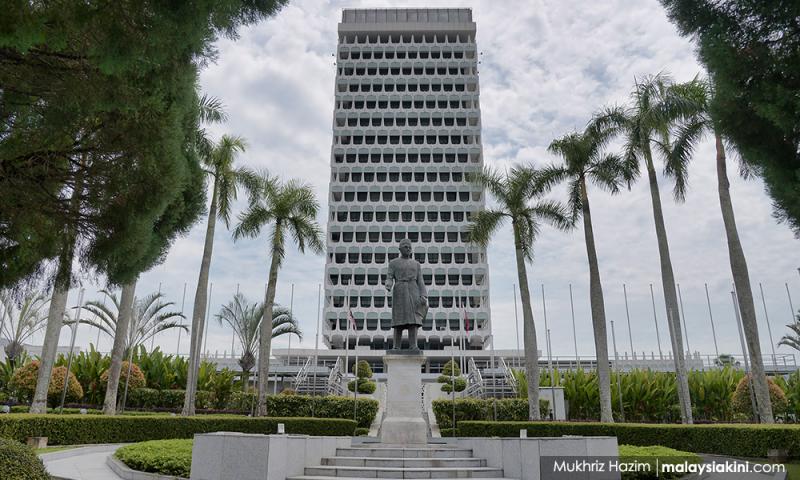
S Thayaparan
Published: Dec 2, 2024 11:01 AM
“Being an old farm boy myself, chickens coming home to roost never did make me sad; they’ve always made me glad.”
COMMENT | Of course, I agreed with Wong Chin Huat when he disagreed with former prime minister Dr Mahathir Mohamad on the latter’s contention that there should be legislation that only permits two parties.
Mahathir has never met a democratic first principle which he didn’t think needed to be ditched for hegemonic power.
Asked about something as trivial as freedom of assembly and association, the old maverick proudly claimed that there was “no absolute freedom”, even though he started not one but three parties (Umno Baru, Bersatu, and Pejuang) in an attempt to sustain political power and “good results” be damned.
“If you want total freedom, there must be good results. When you find that freedom destroys a society, you have to think about limits to freedom,” he said.
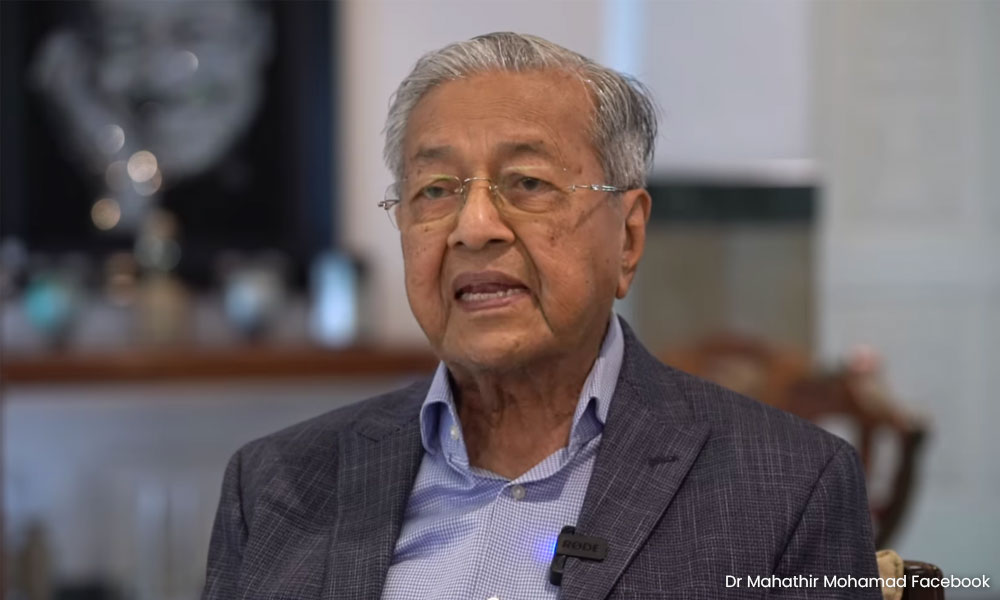
Mind you, Mahathir is speaking of fascistic ideas which have sustained him for decades when he was in power. People, especially non-Malays, voted for him which legitimately kept him in power.
It kept his system of governance in power and this included the crackdowns on a whole range of civil rights issues and racial excesses.
One could make the argument that the Madani regime is playing from the same playbook, not realising that the political terrain has changed after the racial and religious indoctrination of the BN era.
So, if you agree with Wong - a Sunway University political scientist - what we have to ask ourselves is what does political stability mean in the Malaysian context?
What’s the difference?
Wong believes that the potential need for power sharing after an election between different political groups would ensure some form of stability. Now, this would mean something if there was any real ideological difference between these disparate parties.
Mahathir, like any successful demagogue, views politics through a Manichean lens and was very successful. He understands that there are two kinds of political ideologies in this country. Ketuanism and Pak Turut-ism (for the non-Malays).
The Madani government is a perfect example of this. There is very little sunlight between the Malay power structures in the Madani government and the very potent Malay Perikatan Nasional opposition.
The DAP, which should have been an outspoken political bloc in the regime, is neutered by Umno and sidelined by the chief executive because Anwar Ibrahim understands that the very appearance of relying on them or defiance from them, would be bad optics for the voting base he wants to cultivate.
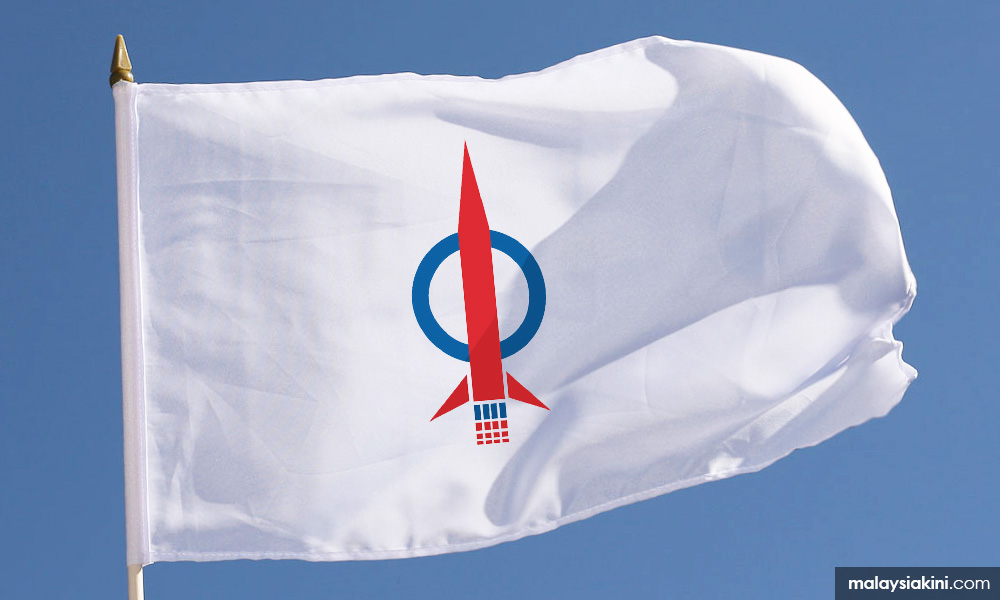
When it comes to core ketuanan (supremacy) values, the establishment and the opposition are simpatico.
Malay rights have been weaponised to the point that the Madani regime would rather not carry out any utilitarian policies that would benefit everyone, especially the Malays because they are the majority for fear of the opposition claiming that Malay/Muslim rights are being sidelined because of the DAP.
Mahathir, if you remember, said that the Chinese were helped “… but what we gave to them was very small (compared to what the Malays got). But we could not say it then because then the Chinese would be angry.”
But, of course, these same Malay power brokers would use the DAP when they needed support. And I say this with some sarcasm but mostly understanding because the DAP have been loyal partners.
Ripe to be taken advantage of
Former prime minister Muhyddin Yassin is attempting to burnish PN credentials with non-Malays at the moment, but remember how it was when he was collaborating with the DAP?
Former deputy minister Liew Chin Tong’s description of how the DAP gave everything to then-home minister Muhyiddin but still wasn’t enough, points to how non-Malay political operatives were desperate for some sort of consensus or compromise but this still made them targets of opportunity for the Malay establishment.
And this is the way how it was always played, as Wong reminds us - “This is structurally the reason why soft-spoken (former Umno vice-president) Hishammuddin Hussein raised his “keris” for three consecutive years in Umno assemblies, even though BN benefited from non-Malay support for its landslide.”
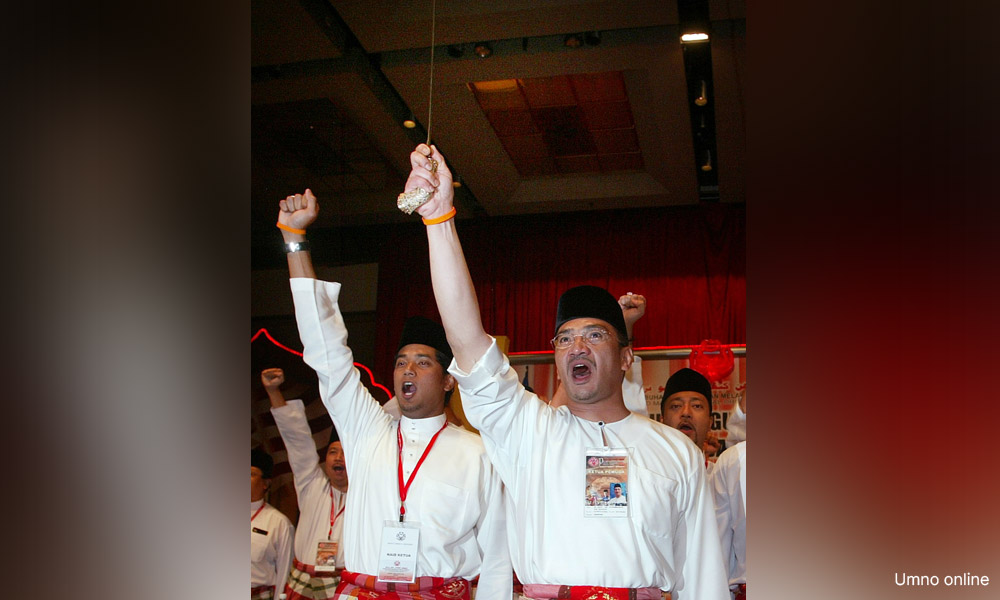
Published: Dec 2, 2024 11:01 AM
“Being an old farm boy myself, chickens coming home to roost never did make me sad; they’ve always made me glad.”
- Malcolm X
COMMENT | Of course, I agreed with Wong Chin Huat when he disagreed with former prime minister Dr Mahathir Mohamad on the latter’s contention that there should be legislation that only permits two parties.
Mahathir has never met a democratic first principle which he didn’t think needed to be ditched for hegemonic power.
Asked about something as trivial as freedom of assembly and association, the old maverick proudly claimed that there was “no absolute freedom”, even though he started not one but three parties (Umno Baru, Bersatu, and Pejuang) in an attempt to sustain political power and “good results” be damned.
“If you want total freedom, there must be good results. When you find that freedom destroys a society, you have to think about limits to freedom,” he said.

Mind you, Mahathir is speaking of fascistic ideas which have sustained him for decades when he was in power. People, especially non-Malays, voted for him which legitimately kept him in power.
It kept his system of governance in power and this included the crackdowns on a whole range of civil rights issues and racial excesses.
One could make the argument that the Madani regime is playing from the same playbook, not realising that the political terrain has changed after the racial and religious indoctrination of the BN era.
So, if you agree with Wong - a Sunway University political scientist - what we have to ask ourselves is what does political stability mean in the Malaysian context?
What’s the difference?
Wong believes that the potential need for power sharing after an election between different political groups would ensure some form of stability. Now, this would mean something if there was any real ideological difference between these disparate parties.
Mahathir, like any successful demagogue, views politics through a Manichean lens and was very successful. He understands that there are two kinds of political ideologies in this country. Ketuanism and Pak Turut-ism (for the non-Malays).
The Madani government is a perfect example of this. There is very little sunlight between the Malay power structures in the Madani government and the very potent Malay Perikatan Nasional opposition.
The DAP, which should have been an outspoken political bloc in the regime, is neutered by Umno and sidelined by the chief executive because Anwar Ibrahim understands that the very appearance of relying on them or defiance from them, would be bad optics for the voting base he wants to cultivate.

When it comes to core ketuanan (supremacy) values, the establishment and the opposition are simpatico.
Malay rights have been weaponised to the point that the Madani regime would rather not carry out any utilitarian policies that would benefit everyone, especially the Malays because they are the majority for fear of the opposition claiming that Malay/Muslim rights are being sidelined because of the DAP.
Mahathir, if you remember, said that the Chinese were helped “… but what we gave to them was very small (compared to what the Malays got). But we could not say it then because then the Chinese would be angry.”
But, of course, these same Malay power brokers would use the DAP when they needed support. And I say this with some sarcasm but mostly understanding because the DAP have been loyal partners.
Ripe to be taken advantage of
Former prime minister Muhyddin Yassin is attempting to burnish PN credentials with non-Malays at the moment, but remember how it was when he was collaborating with the DAP?
Former deputy minister Liew Chin Tong’s description of how the DAP gave everything to then-home minister Muhyiddin but still wasn’t enough, points to how non-Malay political operatives were desperate for some sort of consensus or compromise but this still made them targets of opportunity for the Malay establishment.
And this is the way how it was always played, as Wong reminds us - “This is structurally the reason why soft-spoken (former Umno vice-president) Hishammuddin Hussein raised his “keris” for three consecutive years in Umno assemblies, even though BN benefited from non-Malay support for its landslide.”

Hishammuddin Hussein (right) raising the keris during the 2007 Umno general assembly
But it gets complicated because, like Mahathir, non-Malays have a Manichean view of the party that represents them when the truth, as former Malaysiakini staffer Martin Vengadesan pointed out a couple of years ago, is much more complicated.
Martin wrote about this complexity here, about how DAP is essentially a Chinese-based party with token Indian and other representations all wrapped up in a weird cult-like ideology of toxic online behaviour and national victimhood.
It is as if Umno’s Chinese bogeyman political party was willed into existence after decades of racial and religious policies and a certain percentage of the electorate is suffering from some form of post-traumatic stress disorder.
Don’t rock the boat
In my experience, conservatism in the Malaysian context means “do not spook the Malays”, which essentially translates to “do not disrupt the existing political paradigm” even though it has proven extremely toxic economically, socially, and politically to the majority community.
The DAP, like the MCA, has engaged with Malay power structures in much the same way, through appeasement and rejecting the secular and egalitarian values they preach to their base.
While there may have been benefits to this in the past as some sort of moderating influence and, of course, communal benefit, the political landscape has changed.
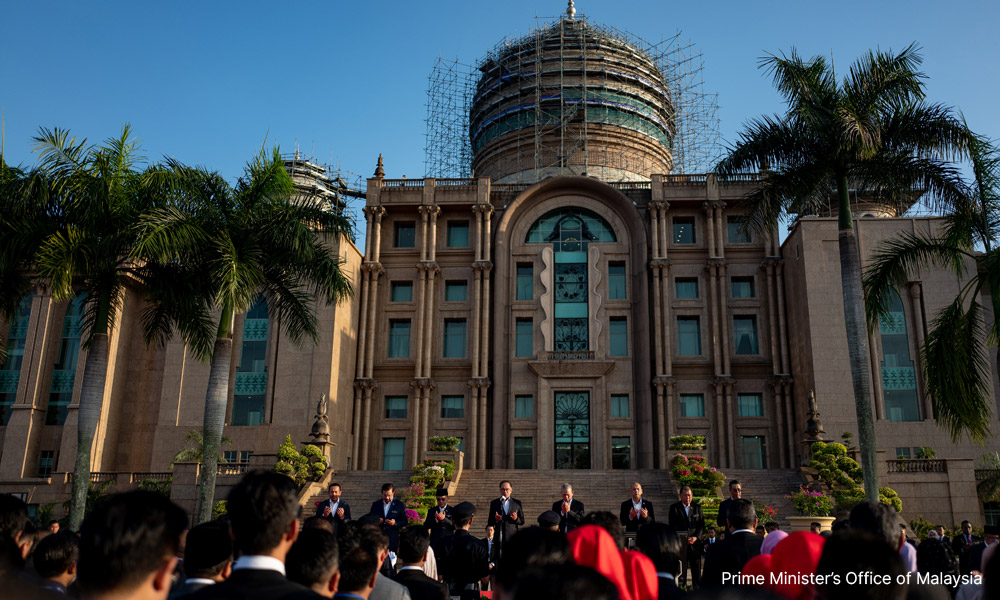
This has always been the problem for Malaysians who want an honest deal. This is the definition of “moderate politics” in Malaysia and it has resulted in the erosion of our public and private spaces because the Malay political establishment had no pushback whatsoever from compliant non-Malay political partners.
All this would have been the compromises rational Malaysians had to make if it meant that the centre was holding and we could live with this kind of political stability.
However, the reality is that the second part of the ideological equation in Malaysia, subservience, is slowly eroding. What form of moderation to keep the centre holding is slowly being chipped away by the Madani regime, for inexplicable reasons.
So what we get under the Madani regime, as far as political stability is concerned, are institutions that appear to be weaponised, enabling the religious bureaucracy, turning a blind eye to the corruption scandals-laden personalities that form this coalition government, coddling religious and racial agitators within the regime, and of course, a clampdown on speech.
All of which are fatal to democracies.
In other words, political stability in the Malaysian context is a hangman’s noose.
But it gets complicated because, like Mahathir, non-Malays have a Manichean view of the party that represents them when the truth, as former Malaysiakini staffer Martin Vengadesan pointed out a couple of years ago, is much more complicated.
Martin wrote about this complexity here, about how DAP is essentially a Chinese-based party with token Indian and other representations all wrapped up in a weird cult-like ideology of toxic online behaviour and national victimhood.
It is as if Umno’s Chinese bogeyman political party was willed into existence after decades of racial and religious policies and a certain percentage of the electorate is suffering from some form of post-traumatic stress disorder.
Don’t rock the boat
In my experience, conservatism in the Malaysian context means “do not spook the Malays”, which essentially translates to “do not disrupt the existing political paradigm” even though it has proven extremely toxic economically, socially, and politically to the majority community.
The DAP, like the MCA, has engaged with Malay power structures in much the same way, through appeasement and rejecting the secular and egalitarian values they preach to their base.
While there may have been benefits to this in the past as some sort of moderating influence and, of course, communal benefit, the political landscape has changed.

This has always been the problem for Malaysians who want an honest deal. This is the definition of “moderate politics” in Malaysia and it has resulted in the erosion of our public and private spaces because the Malay political establishment had no pushback whatsoever from compliant non-Malay political partners.
All this would have been the compromises rational Malaysians had to make if it meant that the centre was holding and we could live with this kind of political stability.
However, the reality is that the second part of the ideological equation in Malaysia, subservience, is slowly eroding. What form of moderation to keep the centre holding is slowly being chipped away by the Madani regime, for inexplicable reasons.
So what we get under the Madani regime, as far as political stability is concerned, are institutions that appear to be weaponised, enabling the religious bureaucracy, turning a blind eye to the corruption scandals-laden personalities that form this coalition government, coddling religious and racial agitators within the regime, and of course, a clampdown on speech.
All of which are fatal to democracies.
In other words, political stability in the Malaysian context is a hangman’s noose.
S THAYAPARAN is Commander (Rtd) of the Royal Malaysian Navy. Fīat jūstitia ruat cælum - “Let justice be done though the heavens fall.”

The existing political paradigm is built upon yrs of ketuanan narratives. These narratives have a deep & widespread mindset grips upon most of the melayu of all sectors.
ReplyDeleteThe incubation & indoctrination of the melayu-first at all costs to the nation & their psychical evolution, means most the delay WON'T accept anything to the existing political paradigm!
The Non would be given some bread crumbs in return for a bigger cut of their fair share of the national bread - give-&-give-more - so as not to spook the delay majority!
This is a deadlock that COULD never be broken, especially those controlling & manipulating elites want to hold on to their sopo grips of their flocks of blur-sotong, zombies & ketuanan freaks!
Cry, my beloved land where my forebears fight so hard to build a dream home using their blood, sweat & tears.